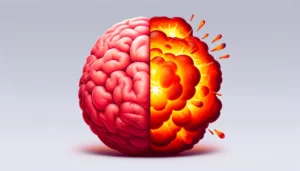Automation Will Create Millions Of New Jobs. Wait A Second? NEW JOBS?

The story acutally goes like this: Through automation and AI, machines can now and in the future do the work that people did before. This is why the OECD expects about half of all jobs in the member states to be threatened wholly or partially by machines or algorithms.
2.4 million new jobs in three years
The other side of the story is (at least, according to a new study): Automation and AI will create many new jobs. Business consultancy company Deloitte polled senior executives from more than 500 international companies this year and concluded: “Over the next three years, executives expect automation to increase their workforce capacity by 27 percent: equivalent to 2.4 million extra full-time employees in the workforces of the 523 organizations that took part in our survey.” The newly released Global Intelligent Automation Report states further that this presents a significant opportunity to drive productivity and improve the human experience, as roles are redesigned and work is made more meaningful.
Currently, about 36 percent of the companies consider Artificial Intelligence in their corporate strategy, but automation contributes measurably to economic success only in 11 percent of them. The expectations of algorithms and intelligent machines are great anyway. “More and more companies are recognizing the opportunities that come with using intelligent automation technologies. Most of them expect cost reduction and increased productivity and quality in their business processes, “says Werner Kolarik, Partner at Deloitte Digital Austria.
Essential: Further training for employees
Automation and AI won’t reduce jobs, this is the conclusion of other studies as well. An analysis by Gartner, for example, says that by 2020, around 2.3 million new jobs will be added, while “only” 1.8 million will be lost. The World Economic Forum expects that by 2022, 75 million jobs globally will be lost due to a shift in the division of labor between man and machine, while 133 million people will be given new roles. If the predictions come true, more jobs would be created than lost.
Essential for this redeployment, however, is the education and training of employees. “The successful implementation of automation processes requires appropriate training of the workforce. Almost two-thirds of companies have not even thought about which parts of their workforce need to be retrained due to automation, ” says Kolarik of Deloitte. “Next year, intelligent automation will find wider applications worldwide. If companies want to keep up, they now have to deal with the issue intensively and, above all, involve their employees much more. “
The bigger question
With robots, automation, AI or without them – a major issue is the recession of the German industry, currently in Austria large neighboring country is being treated intensively by business and politics. As Europe’s growth engine, Germany will become a problem child. How this development affects jobs remains to be seen.





























